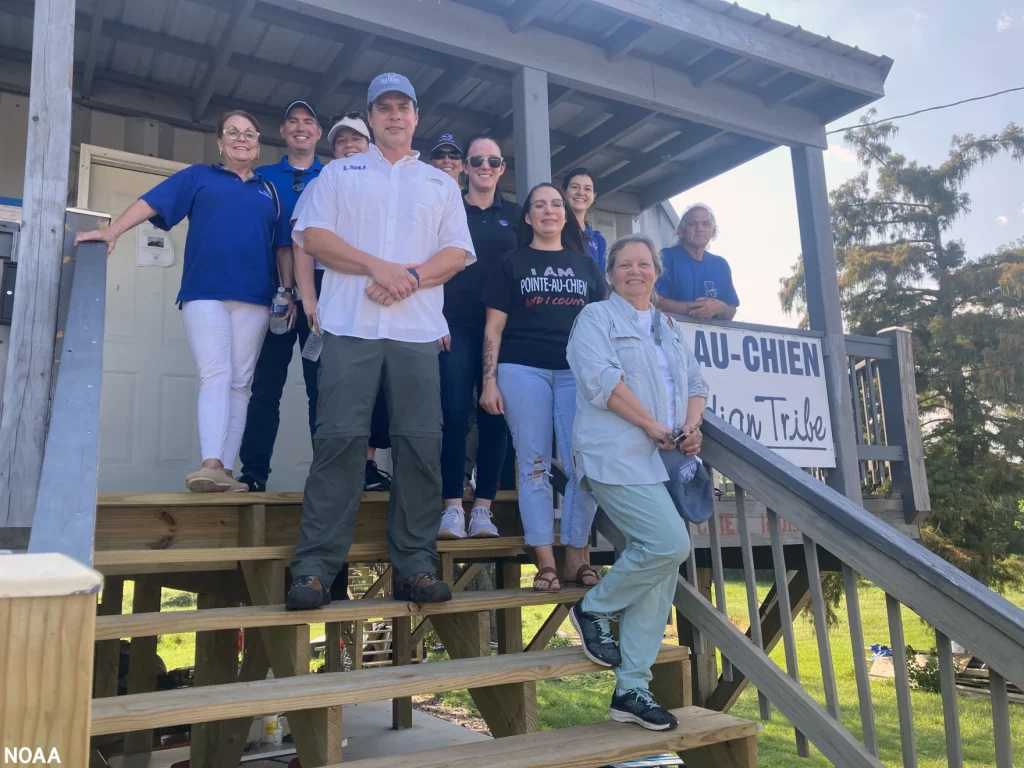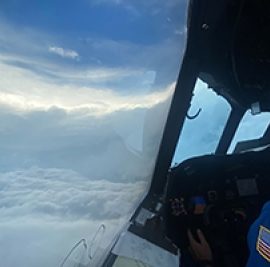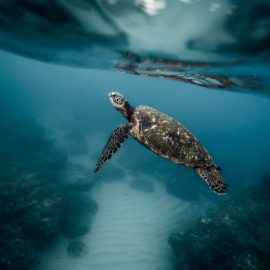
The Pointe-au-Chien tribe will be partnering with various federal agencies to strengthen climate resiliency.
A new pilot project, which partners the Pointe-au-Chien Indian tribe with federal agencies, aims to strengthen climate change resilience, data gathering and adaptation resources for the Louisiana tribe. Called “Building Relationships and Community Resilience with the Pointe-au-Chien Indian Tribe of Southeast Louisiana,” the project serves as a way to build community connections through conversations and training efforts between tribe members and the National Oceanic and Atmospheric Administration, or NOAA. It’s through those connections that NOAA hopes to find the right resources to bolster the tribe. “This collaboration serves as a model of how to build meaningful connections that get climate information and data into the hands of those that need it to plan for the future,” said NOAA administrator Rick Spinrad, Ph.D., in a press release.
wwno.org
The reason for this interaction is the Gulf and sea level rise and more rain.
The area for a pilot project was chosen because the Gulf faces many climate-related issues, such as sea level rise and extreme rainfall. It is one of seven other regional pilot projects happening across the country. The projects center on underrepresented populations – including low-income residents and other indigenous communities in Nevada and Alaska – to build heat resilience and combat coastline loss and help these communities plan for natural disasters. The project was also developed in response to the aftermath of Hurricane Ida. NOAA held a virtual roundtable discussion two months after the Category 4 storm and heard first-hand accounts from residents and stakeholders of how damages from the storm and other long-term flooding issues have affected communities. One shortcoming that was brought up was NOAA’s communication of disaster damage to rural areas like Pointe-aux-Chenes, an area of southeast Louisiana that was affected by Ida.
Usually NOAA takes pictures of damage but there were none taken of the tribes damage.
Typically used during storms, the NOAA Emergency Response Imagery is made up of aerial photos used by first responders and the general public after a hurricane or other disaster to assess damage — but photos of Pointe-aux-Chenes weren’t taken, tribe member Patty Ferguson-Bohnee said. Residents who had to evacuate were left in the dark about what damages occurred to their homes until they were able to travel back. Ferguson-Bohnee said that this partnership helped guide NOAA on how to better serve rural areas and help tribal members gain knowledge of what support is available. She added that they are working together to create a toolkit to be better prepared for future extreme weather events. This includes tribal members getting trained to take measurements near the bayou’s floodgate when tides are rising. “We’re getting information on how we can have weather events monitored, then get this information to the community, and have it address our unique needs — it’s pretty impactful,” Ferguson-Bohnee said.

The tribes way of life is being threatened with the effects of climate change.
Donald Dardar, the tribe’s second chairman, said the project came at a time when the tribe is facing rapidly intensifying storms and land loss in their homelands. The tribe still farms, fishes and hunts on the land, but climate change threatens their way of life, Dardar said. “This project is important to support our adaptation and resilience efforts as we work to maintain our cultural heritage and way of life for future generations,” Dardar said in a press release. Along with the pilot project, the Louisiana Sea Grant and the tribe will also use Environmental Protection Agency funding to create a Tribal Coastal Resilience Index, a self-assessment tool that will help the tribe set priorities in the face of shifting coastal conditions. They also hope to use it as a resource to access NOAA data for tribal projects like the living oyster shoreline, a reef they built out of recycled oyster shells used to slow the loss of land around their cultural sites. “There will be more data and resources to connect traditional and specific knowledge to our area with modern tools. It will help make the community more resilient,” Ferguson-Bohnee said. The project received $70,000 in funding this year from NOAA and is being distributed by the Louisiana Sea Grant. The tribe and federal agency officials will continue to work on the pilot project through at least 2023.
I am glad this partnership has been formed as this tribe does face many threats.



